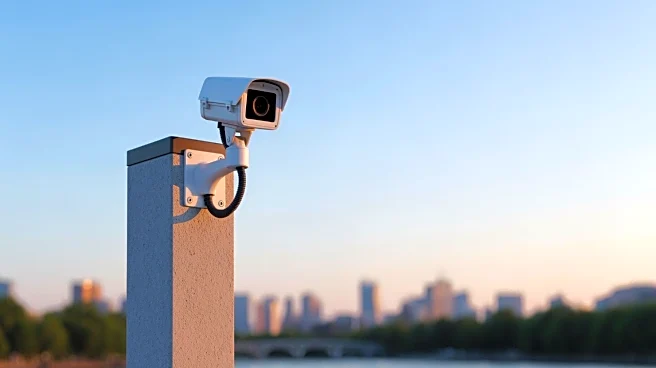What's Happening?
Ten years after the Paris terror attacks, France continues to uphold stringent security measures. The attacks, which significantly impacted the nation's political landscape, led to the implementation of
laws enhancing surveillance and restricting civil liberties to prevent future incidents. These measures include expanded state surveillance powers and the ability to impose restrictions without judicial approval. The government has also reshaped immigration policies and increased oversight of religious organizations. Despite the reduced probability of large-scale attacks, as noted by Nicolas Lerner, head of France's foreign intelligence service, the presence of armed soldiers and heightened alerts remain a constant in French society.
Why It's Important?
The sustained security measures reflect a shift in France's balance between civil liberties and public safety. This approach has influenced other nations facing similar threats, potentially leading to a global trend of prioritizing security over personal freedoms. The measures have also sparked debates on the ethical implications of surveillance and the potential for government overreach. While proponents argue these policies have prevented further attacks, critics caution against the erosion of civil liberties. The ongoing vigilance underscores the lasting impact of terrorism on national policies and societal norms.










